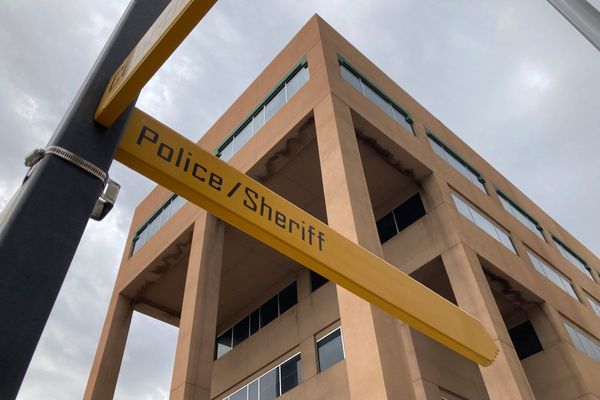
The political goals of the government’s new strikes (minimum service levels) bill, unveiled this week by Grant Shapps, the business secretary, are transparent. The bill picks an entirely avoidable fight with the trade unions. It does so for two main reasons, and neither has much to do with the need to bring the current industrial disputes to either a fair or an early end.
The first reason is to rally a still fractious Tory party more firmly behind the prime minister, Rishi Sunak, through an act of explicitly Thatcherite homage. The second is the hope that the unions will overreact and that Labour – which was 21 points ahead in the polls at the start of 2023 – will be drawn in and damaged by association with an upsurge of militancy, thus slowing Keir Starmer’s march towards Downing Street.
The first of these reasons has a greater chance of success than the second. With too few exceptions, most Tory MPs still think of trade unions as enemies within. Too often they believe the 2020s are still the 1980s, that Mick Lynch is today’s Arthur Scargill, and that bashing the unions brings assured electoral rewards. With this bill, Sunak reassures the Tory right that he is their man. He keeps the party together at a time when Boris Johnson is out there teasing it with thoughts of a comeback.
It can’t be ruled out that there may be something going for the second reason, too. A majority of public opinion is currently sympathetic to the striking nurses, in particular, and perhaps to other striking workforces too. But the approval is not as solid as optimists pretend. In general, strikes are unpopular, not the reverse, and if the costs and inconveniences drag on, things could begin to turn. The government’s short-term problem is that this isn’t happening yet, and voters think ministers could sort out the disputes if they tried.
But the new bill is not simply a provocation and a distraction, even though it is both these things. Even with good parliamentary progress, it will unquestionably find itself tested in the courts before key provisions can take effect, just as is happening over deportations to Rwanda. So it does nothing to solve urgent disputes such as this week’s ambulance strike. It is not really intended to.
It is nevertheless a dangerous piece of law-making. This is not just because it is another attack on the so-called right to strike. Like many such rights, this one is already heavily circumscribed by law. The bill tightens this further by allowing employers to sack workers who defy a “work notice” by striking. In effect, the new bill compels someone to work.
Yet the larger problem is that the bill is drafted in imprecise and sweeping terms. These would effectively allow ministers to rule industrial relations by decree, and not only in what are currently regarded as essential services. There is very little detail in the bill about the criteria that ministers would have to apply. This is a potential minefield. It risks creating many more problems than it purports to solve.
The bill describes itself as a piece of legislation “to make provision about minimum service levels in connection with the taking by trade unions of strike action relating to certain services”. But what do some of these words mean in law? Look in more detail at the full draft and it is not clear, for instance, where “provision” begins and ends, what “minimum levels” actually mean in individual cases, whether “strike action” includes other forms of industrial action, or where the boundaries of “certain services” are drawn.
Two of these issues, in particular, run through the whole bill as published. Both need far more thought than the bill shows any sign of embodying. The first is about the services that would be covered. The bill lists six: health services, fire and rescue, education services, transport services, radioactive waste and border security.
These are broad categories covering many activities. Not all are provided by the state, so hundreds of private firms will be directly affected by ministerial decisions. In some sectors, “life and limb” cover is required by law already. Yet strikes in education, for example, place the public at less direct risk than strikes in the fire service could do. Other industries, such as fuel or even banking, could be regarded as essential services but are not covered in the bill.
The second trap is how to define a minimum level of service. It is the minister’s job under the new bill to specify what this means, sector by sector, depending on the dispute. The bill grants enormous scope. The legal commentator Joshua Rozenberg describes one clause, allowing ministers to “amend, repeal or revoke” other laws, even before they come into force, as “a supercharged Henry VIII clause”.
The International Labour Organisation, of which the UK is a founding member, has rules and conventions about minimum service levels. You would hardly know this from the bill. Instead, the bill gives ministers sweeping new powers, which they could use wisely and narrowly, or recklessly and across the board. It will all depend on the good sense and competence of the government in question. Not a happy thought.
In the real world of now, the Sunak government has a strategic choice. It can try to resolve the existing disputes in a practical but inevitably messy way. Or it can press ahead with a showboating bill that offers nothing except a bottomless pit of potential conflicts for thousands of workplaces. It tells us a lot about the government that it seems to prefer the latter to the former.
• Martin Kettle is a Guardian columnist







